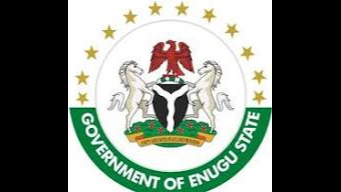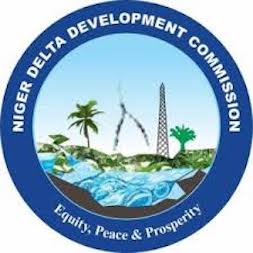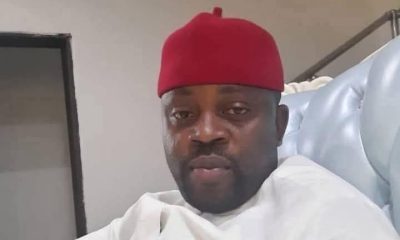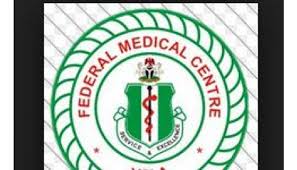Health
Lessons From COVID-19 Pandemic Should Stimulate FG, Stakeholders to Fund NIPRD – DG

The National Institute for Pharmaceutical Research and Development (NIPRD), said lessons from COVID-19 Pandemic should stimulate the FG and stakeholders to fund NIPRD to function as hub for coordination of finding pharmaceutical solutions in healthcare delivery.
The Director General, Dr.
Obi Adigwe, said this on Wednesday in Abuja, at the Joint World Health Organization (WHO)-Stakeholders Feedback Workshop.The workshop is on the Evaluation of the third WHO -Nigeria Country Cooperation Strategy (CCS), (2018-2022) and Development of the fourth WHO Nigeria Country Cooperation Strategy (2023-2027).
The strategic stakeholders’ engagement will come up with new realities for joint strategic health agenda for WHO’s technical cooperation in Nigeria in the next five years.
This will enable WHO to jointly promote, provide, protect, power, and perform for health purposes.
Adigwe, who was represented by Dr. Abubakar Danraka, Special Adviser to DG NIPRD, said NIPRD remained committed to continuing its statutory mandate in undertaking research and development activities that would improve access to health and contribute to the economy.
“We have and will continue to play a lead role in articulating the prioritization of innovative Pharma intervention in healthcare delivery in Africa.
“Solutions for African healthcare delivery issues must come from Africans who have the willingness and capacity to engage vigorously with relevant issues,” he said.
He said that NIPRD had demonstrated cognate capacity, experience and expertise to lead in innovative Pharma intervention and remained partnership-ready to collaborate with other critical stakeholders at all times.
“This is geared towards promoting integration of Herbal Medicine into Conventional Medicine with the goal of expediting attainment of Universal Health Coverage (UHC),” he said.
Dr. Ahmed Abdulwahab, Senior Health Advisor, Nigerian Governors Forum, said that effective engagement of states and local governments was crucial in strengthening healthcare delivery towards achieving UHC in the country.
He said it would foster meaningful connections, inspire action and build trust.
Abdulwahab said it was thus important to actively involve the subnational (on national interventions) very early in the design of interventions not much later down the road during implementation and evaluation.
The former Chairman, Senate Committee on Health, Sen. Ibrahim Oloriegbe, said that federalism posed an additional layer of complexity to the country’s health system.
Oloriegbe said that the lack of true autonomy for lawmakers at the sub-national level made it difficult to deliver their statutory functions, especially the accountability function.
“Sub-optimal implementation of provisions from existing health legal frameworks (eg. NHAct) is inimical to achieving health sector objectives.
“Low absorptive capacity of health MDAs should be addressed to accelerate progress.
“Though we have made progress in community involvement in health governance, we need to do more to improve the performance of our community health structure,” he said.
He said that the complexity created by federalism was further compounded by a lack of clarity in constitutional separation of health management roles among the tiers of government.
“The opacity in the constitutional separation of health management roles gives rise to a situation where tiers of government intervene at the level of health care delivery they so wish.
“The aforementioned weakens the accountability in the health sector,” he said.
Earlier, Dr. Walter Kazadi Mulombo, WHO Country Representative to Nigeria, said the workshop discussions aimed at aligning WHO’s core functions to promote, provide, protect, power, and perform for health with the Nigerian government and stakeholders’ health priorities at national and sub-national levels.
Kazadi said “this Joint workshop will amongst other outcomes, help to provide guidancee and in addition, proffer some answers to difficult questions.
He said such difficult questions are: “Why are the health indicators of the country not improving and what game-changing role should WHO be playing in the 4th Generation CCS, to positively impact health in Nigeria.
“ More fit-for-purpose, more resourced, and more empowered, we will strengthen strategic partnerships with you all at the national and sub-national levels to promote coordination, accountability, sustainability and value-for-money.”
NAN reports that the CCS is a medium-term strategic document that presents WHO’s vision for technical cooperation with a given member state, in support of the country’s national health policy, strategy, or plan.
Introduced in the year 2000, its purpose is to co-create a strategic agenda that aligns WHO’s collaboration with other UN bodies and development partners at the country level, based on identified needs.
WHO in Nigeria had developed and successfully implemented three generations of the CCS.
The current CCS which was originally developed in 2014, was reviewed in 2028 and extended to 2022 to respond to the SDGs in line with the Nigeria Economic Recovery and Growth Plan, the National Health Policy 2016, and the National Strategic Health Development Plan II, among others.
(NAN)
Health
FG Promises Access To Eye Care For Every Nigerian

Dr Iziaq Salako, the Minister of State for Health and Social Welfare says the Federal Government will ensure that every Nigerian has access to the eye care they need.
Salako said this in Abuja on Thursday at the Eyeball Summit organized by the Optometrists and Dispensing Opticians Registration Board of Nigeria (ODORBN).
The summit’s theme was “Shaping the Future of Eye Care in Nigeria: Strengthening Systems Through Strategic Alliances”.
According to Salako, the theme is quite apt and aligns with the ministry’s current line of investment in the health sector.
He said that it also aligned with the overall goal of the Renewed Hope Agenda to ensure that Nigerians are provided with the healthcare they need at any point in time without financial hardship.
He said that in the face of rising challenges, such as the increasing burden of visual impairment and the growing demand for eye care services, the ministry may not address the issue of eye health in isolation.
“By working together, we can ensure that every Nigerian, regardless of their geographical location or economic status, has access to the eye care they need.
“This summit serves as an important platform to collectively strategise and propose concrete solutions that can strengthen the eye care system in Nigeria.
“It can not be optimally productive without strategic alliances, collaboration and cooperation.
“It is through partnerships that we can pool resources, share expertise and develop innovative solutions to overcome the gaps in eye care provision,” Salako said .
According to him, it will include increasing awareness about the importance of regular eye check-ups, ensuring that the necessary infrastructure and human resources are in place to support the delivery of services.
He said that the partnership would also promote eye health friendly policies and provide continuous professional development training to ensure that eye health care givers are up to date in their knowledge and skills.
“The government is committed to ensuring that you have the necessary tools, policies, and an enabling environment to carry out your work effectively.
“Under this administration, we will continue to expand access to affordable eye care services, which are critical in a country where a large proportion of the population live in underserved areas,” he said.
Dr Obinna Awiaka, Registrar of the board, said that the summit was, a testament to their collective commitment, resilience, and aspiration.
Awiaka said that it symbolised the board’s relentless pursuit of excellence, the prioritisation of knowledge, innovation, partnership, and an unyielding devotion to preserving and enhancing the gift of sight for all Nigerians.
According to him, in an era marked by rapid technological change, shifting patient needs, and complex healthcare challenges, it is imperative that the custodians of vision health, stay ahead of the curve.
“We must constantly evolve, embracing innovation while upholding the highest ethical and professional standards.
“The theme speaks to a fundamental truth: No single entity, no matter how skilled or committed, can achieve transformative change alone,” he said.(NAN)
Health
FG Pledges Mentorship, Leadership Support For Boy Child

The Ministry of Youth Development has reaffirmed its commitment to creating platforms that promote mentorship and leadership development for the boy child.
Mr Ayodele Olawande, Minister of Youth Development, said this on Friday in Abuja during a news conference to commemorate the International Day of the Boy Child.
The day is marked annually on May 16, with the 2025 theme, “Boys’ Mental Health and Well-being.
”Olawande stated that the government believed every boy, regardless of background or economic status, deserved quality mentorship to help him thrive.
“As a government, we are committed to creating platforms that promote mentorship and leadership development for the boy child.
Through initiatives like this, we can provide them with the support they need to succeed,” he said.The minister emphasised that the goal was to empower Nigerian youth, including boys, with the skills, knowledge, and opportunities necessary for success.
“In today’s world, many fathers have little time for their children, especially their sons. This can negatively impact their development and well-being,” Olawande noted.
He stressed the importance of mentorship in filling that gap: “Without positive male role models, many boys struggle to develop the skills and values needed to become responsible, productive members of society.”
He added that mentorship offered guidance, support, and helped boys build self-confidence, make sound decisions, and form positive relationships with adults.
Olawande also acknowledged the United Nations for recognizing the significance of supporting boys through mentorship, saying the International Day of the Boy Child reflected global commitment to promote their well-being and development.(NAN)
Health
Enugu To Upgrade Health Facilities For Maternal, Newborn Care

The Enugu State Government has pledged to upgrade secondary healthcare facilities across its 17 Local Government Areas to reduce maternal and newborn mortality.
The commitment was made by the State Commissioner for Health, Prof. Emmanuel Obi, during a dissemination meeting on the assessment of health facilities for Comprehensive Emergency Obstetric and Newborn Care (CEmONC), in Enugu on Friday.
The meeting, themed “Strengthening Emergency and Newborn Care Through Evidence-Based Assessment,” was organised by the Enugu State Ministry of Health.
It was held in collaboration with the Federal Ministry of Health’s Sector-Wide Approach (SWAP) programme and Jhpiego, an affiliate of Johns Hopkins University, USA.
Prof. Obi explained that the initiative aimed to ensure Enugu had efficient secondary healthcare systems capable of providing emergency maternal and newborn care.
He noted that the state had already commenced its own facility assessment, which would now be harmonised with the CEmONC assessment.
“This is an official presentation of findings from the facility assessments conducted by the Federal Ministry of Health, the SWAP Office, and our State Ministry of Health,” he said.
He added that the upgrade would enable Enugu to access federal funding under the “Hope Health” programme and SWAP, based on performance-linked disbursement indicators.
Mrs Francisca Ewoh, SWAP Desk Officer, described the programme as part of Nigeria’s Health Sector Renewal Initiative aimed at reducing maternal and neonatal mortality nationwide.
According to her, pooled partner funds will be allocated to states that meet readiness requirements, with 35,000 dollars available per qualified facility in each council area.
“Eligibility is based on providing adequate infrastructure, utilities, and staffing in secondary healthcare centres.”
Dr Chinyere Ezendu, the Enugu State focal person for the CEmONC assessment, said only two facilities in the state met the basic standards for infrastructure, amenities, water, and electricity.
She added that none of the assessed facilities had the full capacity to manage neonatal complications.
“We are hopeful the findings will be used to develop actionable plans to reduce maternal and neonatal deaths in the state,” she said.
Dr Chioma Oduenyi, a representative of Jhpiego, reaffirmed their technical support to both the national and state-level SWAP efforts in facilitating the implementation process.(NAN)















